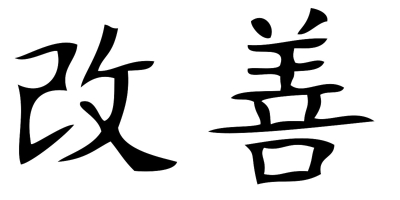- Home
- PHILOSOPHY
OUR PHILOSOPHY
Why I wrote this guide
I’ve been a consultant for more than a decade. Starting as an employee, first as a company lawyer, later combining this job with a function as some kind of a QHSE manager, it struck me that QHSE related services would sometimes be provided only at tremendous costs.
Later (it must have been 2011 or so), meanwhile as a self-employed consultant, I really found out what the costs of some consultants were, and what some certification bodies would charge your company to get certified.
The daily fees of an external consultant would easily equal 800 - 1.000 EUROS (or Dollars of course, just read USD instead of EURO if you want to) or more! And certification (that means: getting your ISO 9001 certificate) would cost you another 5.000 EUROS or more. And don’t forget that the auditor comes back annually (in case you got an ISO 9001 certificate), this means another 1.500 EUROS per year, plus the internal audits that are often organized by your external consultant as these audits must be done by an independent person. Say four days per year (each quarter) and this would cost you another 3.200 – 4.000 EUROS per year.
In my opinion, management systems based on Standards such as the ISO 9001:2015 Standard (Quality), ISO 14001:2015 (Environment) and recently ISO 45001:2018 (Health and Safety, but also welfare) should be available to all organizations (including companies), so that both the owners/managers of these organizations as well as their employees (and other “interested parties”) will benefit from the advantages these Standards can offer.
Don’t take me wrong. Everybody likes to make money and so do I. But in my opinion, there’s simply too much greed in this line of business.
I want to help as many organizations and companies as possible to make their organizations more quality and customer oriented, by using the principles of ISO 9001:2015.
Some fairy tales
One of the basic fairy tales is that an ISO 9001:2015 system is only meant for the big companies. This is not true. ISO 9001:2015 applies to all organizations. Even the local bakery or the local hotel could follow the ISO 9001:2015 Standard, and even go for certification.
Another fairytale is that an ISO 9001:2015 system is expensive. Especially some consultants and/or some “certification bodies” (these are the organization that give you the ISO 9001:2015 certificate after a successful “certification audit”) want you to believe that you can only comply to the ISO 9001:2015 principles if you’ve been certified. And that -indeed- could cost you the price of a nice car.
Fairy tale number three (but there are some more, rest assured) is that you really need the ISO 9001:2015 certificate. In other words, only if you get the expensive “diploma” you are what one calls “compliant”. This also is not true. It’s perfectly possible to be compliant without having a certificate. Of course, a certificate could (and would) add value to your organization, but it is not necessary.
This means you don’t have to be in a hurry. You simply start with what you already have. Maybe there’s already a basic system in place for dealing with customer complaints: This could be a list, including follow-up and actions taken. Perfect! This already covers a big and important part of ISO 9001:2015. Or maybe your company already records certain meetings such as commercial (sales) meetings, operations meetings, followed by action plans and yearly objectives? Great again. Another set of ISO 9001:2015 requirements covered.
You might even start by focusing on a topic that you like most or that’s most important for the time being like monitoring customer satisfaction, and from that topic you might decide to tackle other matters such as planning, evaluation afterwards et cetera. Just use the ISO 9001:2015 Standard as a practical guide that you can use to improve your organization…..
I would strongly recommend you to follow the “Kaizen (Kai Zen)” approach:
“Kai” means something like “Change” and “Zen” stands for “Good”. The two together (Kaizen) are generally translated as “improvement”. I like the idea of a gradual improvement without being in a rush. Take baby steps.
Basically, it is not rocket science. Just follow some basic rules and you’ll be fine. The basic idea behind ISO 9001:2015 is often covered by the adage “Say what you do, do what you say - and prove it”. That’s it.
So just don’t believe people who say things like (I refer to actual examples):
“You need a comprehensive manual”
“Every Section of the ISO 9001:2015 Standard must be translated into a procedure”
“Only a professional consultant can set up an ISO 9001:2015 system for you”
“You must use the standard ISO 9001:2015 language (terminology)”
Et cetera…..
Note that all these statements usually come together with a huge invoice…..
My views
In my opinion, an ISO 9001:2015 management system should be attainable for all SME’s (Small and Medium sized Enterprises), also for the very small ones.
I like ISO 9001:2015 because a Quality Management System may result in:
- Better relations with the customers
- Better relations with the employees (participation and consultation)
- Better streamlining of all your processes, saving time and money, and above all
True leadership
If I can help you to set up such a system without incurring huge costs with my guide and other documents and support, then I’ve reached my goal.
